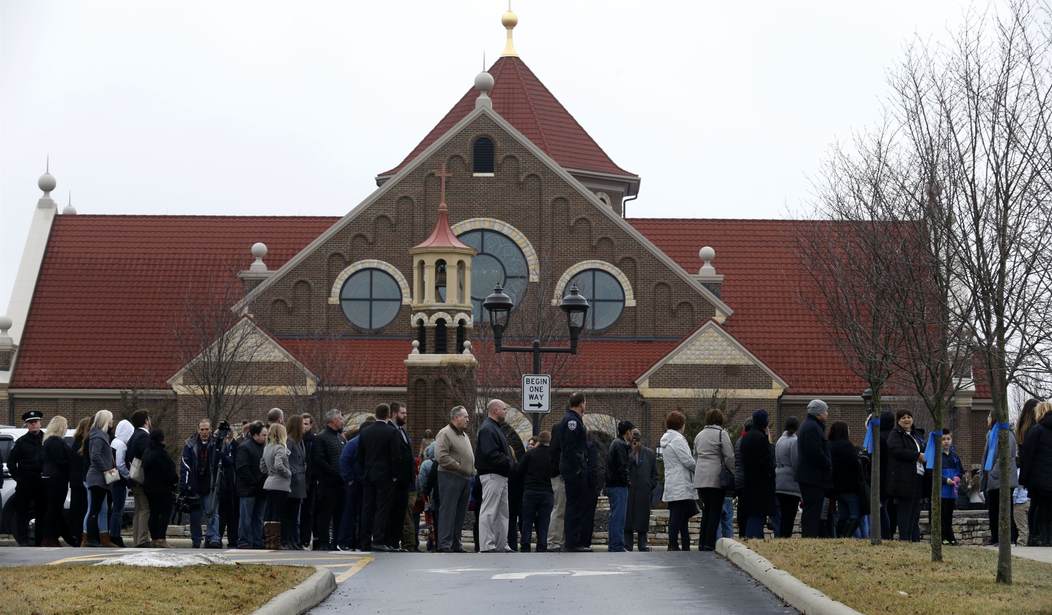For most of my life, partly in response to my own religious education, I have taken a naïve “Enlightenment” view of religion, that religious beliefs were not founded in experience that I had had, and demanded a level of faith to which I could not respond. So it seemed “natural” to me that our society, and the West generally, was secularizing. I was not surprised that church attendance was dropping off, and that there was a general push for “liberal” versions of belief and ceremony in organized religion. People would say that they were not religious but were “spiritual,” which I dismissed as face-saving.
In my professional life as a cultural anthropologist, religion was one of the major human phenomena that it was our obligation to study and understand. I was fortunate in having one of the great anthropologists of religion as a teacher. Clifford Geertz had lived and carried out field research in Java and Morocco, and published extensively on both. Most relevant to the problem we are addressing here, he offered a theoretical approach to religion in an influential paper. I’ll present it shortly.
Western religions — Greek, Roman, Norse, Judaic, and Christian — and those built on them, e.g. Islam, are centered on people’s relationship with superhuman beings, Zeus, Jupiter, Odin, G-d, Jesus, and Allah. In some versions of Western religion, other superhuman beings are added, including Mary, saints, angels, and an anti-Christ, Satan. In Greek, Roman, and Nordic religions there were many gods, most with specialized roles.
But not all religions are focused on superhuman beings. Buddhism is not a G-d-focused religion. And although Hinduism recognizes many gods (some scriptures say 330 million gods, while others say fewer), central parts of the religion do not refer to gods. For example, the purity-pollution hierarchy, and reincarnation, in which people’s karma, or destiny, is fulfilled as they are reborn as higher or lower forms of existence depending on their behavior in the previous life. One main criterion of evaluation is dharma, which is one’s duty to fulfill one’s inherited socio-economic role as a member of a caste. In this case, a person’s relationship to the universe is not defined by gods, but by his or her behavior. If he or she acts in ways that are polluting, they would be reborn in a lower caste or in a lower animal form.
How can we recognize what is a religion if some important ones are not God-focused? To answer, we turn to Geertz’s formulation: “Religion is (1) a system of symbols which acts to (2) establish powerful, pervasive, and long-lasting moods and motivations in men by (3) formulating conceptions of a general order of existence and (4) clothing these conceptions with an aura of factuality that (5) the moods and motivations seem uniquely realistic.” (From “Religion as a Symbol System,” in The Interpretation of Cultures) The remainder of Geertz’s chapter explains in detail each of the numbered phrases in the definition.
This definition is universal because it is not substantive. That is, it does not describe the substance of religious belief; there is no required presence of G-d, gods, saints, angels, Satan, reincarnation, merit for good acts, or other specific beliefs. G-d-oriented religions and others are equally accommodated. Hindu reincarnation fits comfortably in the definition as a “conception of a general order of existence.” Geertz’s approach allows us to see a wider range of belief and behavior as “religious,” and thus accommodates the views of many cultures. We avoid the ethnocentrism of narrowly defining widespread human phenomena in terms of our own Western traditions.
Geertz’s formulation allows us to see phenomena that we do not easily think of as “religious” as being religious. For example, it has long been observed that Communist ideology and organization resemble a religion and church in many respects. The distinguished American theologian Reinhold Niebuhr described the similarities in detail in an Atlantic magazine article published in 1931 entitled “The Religion of Communism.” He argues that “Communism is ostensibly a highly scientific and irreligious social philosophy. In reality it is a new religion.”
Explaining further, Niebuhr says that “Religion in minimum terms is devotion to a cause which goes beyond the warrant of pure rationality, and in maximum terms it is the confidence that the success of the cause and of the values associated with it is guaranteed by the character of the universe itself. Obviously communism falls within the terms of the definition of minimum religion, and it may on close analysis prove to have characteristics which go beyond these minimum terms. The degree of ardor, not to say fanaticism, with which it spreads its doctrines in the world, and, where it is in power, makes facts conform to them, could never be achieved by a scientific world view.”
He continues, “Russian communism has both its creed and its church. Marx is its Bible and the writings of Lenin have achieved a dogmatic significance for it comparable to that which the thought of Thomas Aquinas had for the mediæval church.” Then, correctly seeing the future, he says, “It is interesting to note that communism as a religion has the same difficulty which all religion faces in maintaining its simple certainties. Every religion, born in naïve faith and drawing its robust social strength from the unqualified character of the faith which animates its devotees, must ultimately face the problem of preserving the power of its faith against the relativizing tendencies of intelligence. Nothing is ever as true as it must seem to be to compel action; and time always tends to destroy these illusions of certainty.”
Western countries, with Europe in the lead and the United States trailing behind, have at least since the 20th century undergone secularization, by which is meant fewer citizens adhering to traditional churches and religion and the churches themselves “modernizing” their belief and ritual systems into less demanding and more lenient versions. This is true of most Christian churches and Jewish organizations, where orthodox congregations have had to give way to conservative, reconstructionist, and reform congregations, all of which distance themselves from some orthodox beliefs and practices. Secularization appears to be a general movement away from religion.
Viewing this trend, and reflecting on my own “non-practicing” religious identity, I assumed that the future would be secular. I had dismissed many people’s statements that, although they were not religious, that is, not following a traditional church, they were “spiritual.” But I now think I was incorrect in giving little weight to such statements. Perhaps people do have spiritual needs that cannot be ignored or repressed.
What has made me rethink is the conversion of many “secular” individuals in America, Canada, Europe, Australia, and New Zealand to the new faith of “justice,” encompassing “social justice” and “environmental justice.” Our dual “original sins” of enslaving black people and annihilating indigenous people, on the one hand, and destroying the earth, on the other, require new forms of self-flagellation and hair shirts in order to redeem ourselves. The new faith requires that we reject the earlier misbeliefs in achievement and merit, colorblind treatment, and judging people on the basis of character, and replace them with the new religious doctrines of “diversity, equity, and inclusion.
Our practices must change to reflect penance and abstinence in order to redeem ourselves. White people must give up admission to universities, funding, respect, jobs, appointments, benefits, and rewards so that they will be allocated to BIPOC (black, indigenous, people of color). Heterosexuals must do the same for LGBTQ2S (lesbians, gays, bisexuals, trans, two-spirited); males must do the same for females; able-bodied for disabled; Christians and Jews for Muslims. (Social justice does not imply legal justice for crimes committed. On the contrary, members of preferred categories are largely exempt from legal punishment for their crimes.)
Related: Miami Herald Warns That Christian Rhetoric Could ‘Mobilize Fringe Mobs’
Furthermore, all people must commit to penance and abstinence to save the earth. We must give up meat not just on Fridays, but every day, although eating insects is acceptable (until they become threatened species). The carbon energy needed to provide power to run our factories, transportation, and heat and cool our homes must be given up entirely, lest our planet burn up in ten years! No more ownership that victimizes the earth! Most importantly, no one should selfishly have children, for humans are a blight on the earth, and must be phased out entirely, for the sake of the planet.
For the sake of “social justice,” single-family homes must be seen as evil, a sin against “equity,” for everyone must have the same, whether or not they have earned it. No more examinations of academic achievement and potential, because some categories of people do not do well on them. No more advanced classes or specialized schools because of ditto. No honors unless everyone receives them. It is a matter of the new “woke” morality that, however unequal people may be, they must be treated equally (except whites, males, heterosexuals, able-bodied, and Christians and Jews, who carry the taint of original sin).
Those who convert to the new “Justice Religion” and religiously follow and enforce its doctrines are “virtuous” and are so empowered to require others to convert. Those who have not yet converted must be re-educated, marginalized, or canceled entirely. No mercy can be given to the sinful infidels who reject the religion of justice.
What lies behind this new religion, its endorsement of racism, sexism, bigotry, and discrimination, and its anti-scientific end-of-days imaginings? No factual consensus or any reality-based considerations could have generated such lunacy. Only the spiritual emptiness of secular materialism could have driven people to adopt such extremist and immoral doctrines, which supports the idea that all people have a basic need for religion.









Join the conversation as a VIP Member